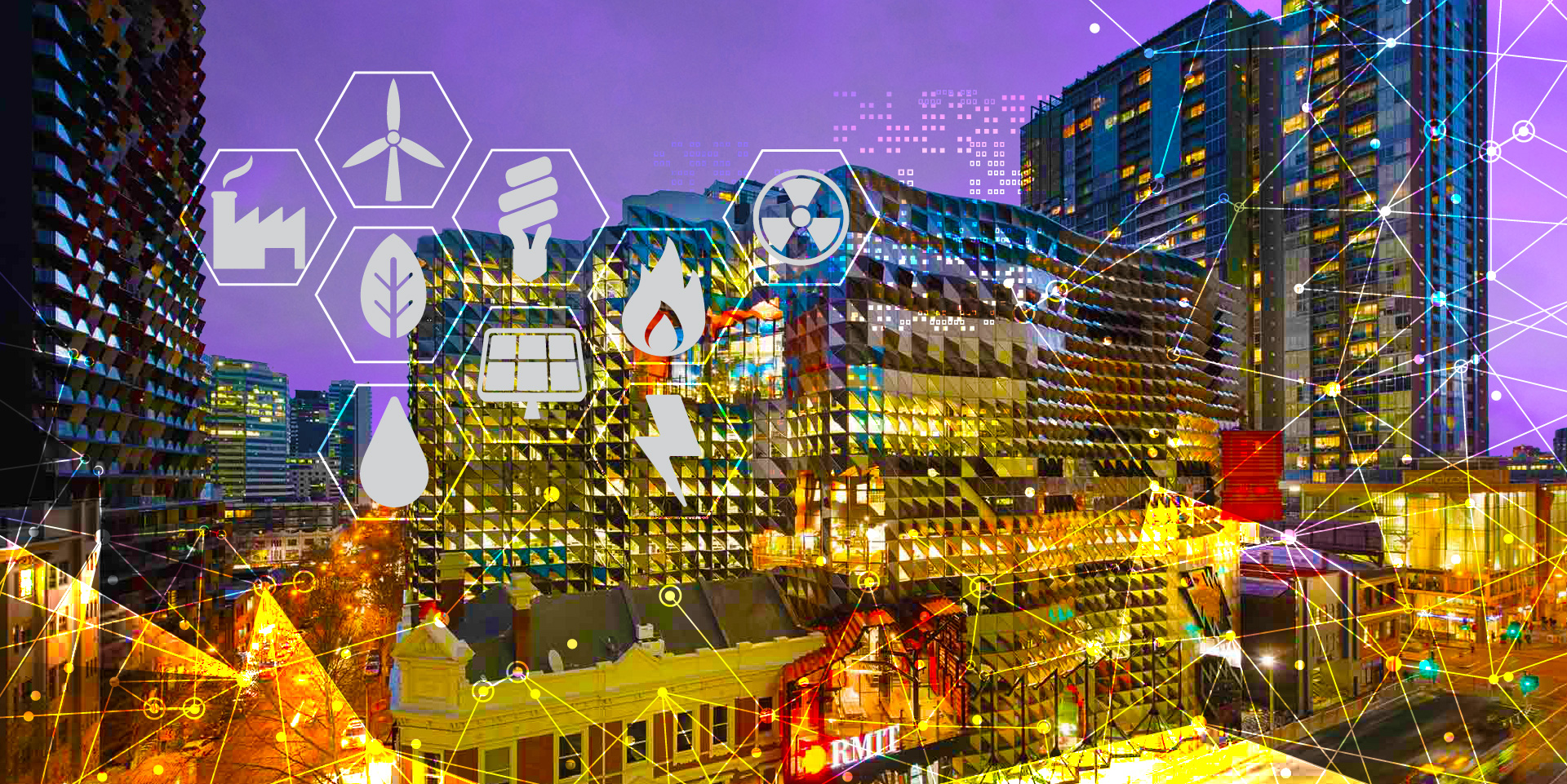
RMIT has a long and rich history of cutting-edge, industrial relevant research in the energy sector.
Energy@RMIT, as a key theme under the Sustainable Technologies and System Enabling Impact Platform, has brought together researcher capabilities to form a team with expertise that spans the complete research space required to understand, lead and support the energy transition.
This covers, for example, blue sky research into new materials for solar energy conversion and storage, modelling the electricity distribution network to understand how to stabilise it with high penetration of intermittent renewables, construction of electric vehicle living labs to support transport electrification, new biofuels, and the legal and economic issues associated with implementing new energy policies.
There are five key research areas, which are outlined below.
Innovative approaches to generate, convert and distribute electrical energy, underpinning the transition to a renewable energy based 21st century smart electrical grid. This group covers engineering, science, economic and legal questions in an interdisciplinary manner.
RMIT’s multidisciplinary capability from science and engineering to design, social sciences, business and law stretches across the hydrogen value chain, with core expertise ranging from new fuel cells and electrolysers, to how societies accept and take-up and de-risk new technologies. RMIT works across scales to ensure that research activities are relevant to partners.
We launched a novel, electric vehicle research facility (living lab) at RMIT University, one of its kind in the southern hemisphere. The transport electrification teams work on technological and network solutions to support the large-scale integration of EVs into the grid. Our legal, finance and economic teams cover the market and regulatory aspects of the transition.
RMIT has world leading expertise in architecture and the built environment that includes planning, design, manufacturing, monitoring, and sustainability. RMIT also has a long history of thought leadership and technology to deliver energy efficiency targets to both the residential and industrial sectors.
RMIT has a well-established research and translation record in solar energy conversion into electricity, heat and electricity, along with new and novel methods to up-convert energy into more useful forms. Along with energy conversion, RMIT is working with industry partners to store the renewable energy cheaply, efficiently and safely.


EIPs enable economic, environmental, societal, health and cultural impact with government, business and the community through research and innovation.
Acknowledgement of Country
RMIT University acknowledges the people of the Woi wurrung and Boon wurrung language groups of the eastern Kulin Nation on whose unceded lands we conduct the business of the University. RMIT University respectfully acknowledges their Ancestors and Elders, past and present. RMIT also acknowledges the Traditional Custodians and their Ancestors of the lands and waters across Australia where we conduct our business - Artwork 'Sentient' by Hollie Johnson, Gunaikurnai and Monero Ngarigo.
Welcome to RMIT - Study@RMIT
Live chat hours
For after hours assistance, submit your enquiry and we'll get back to you as soon as possible.